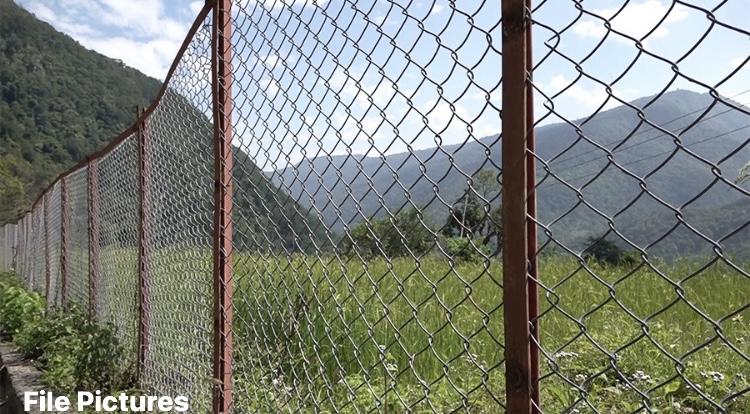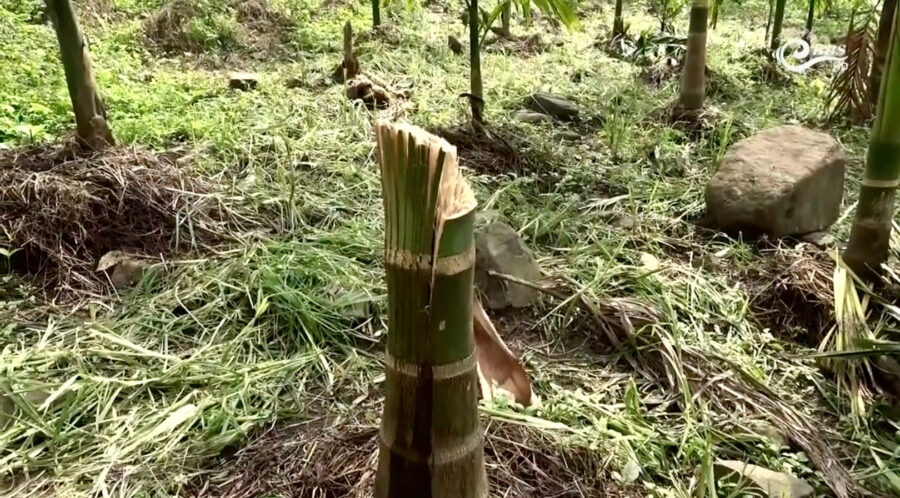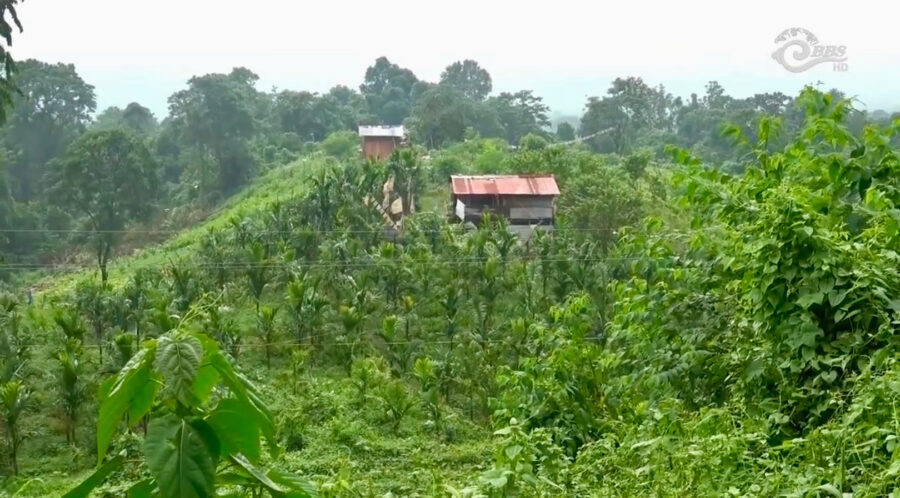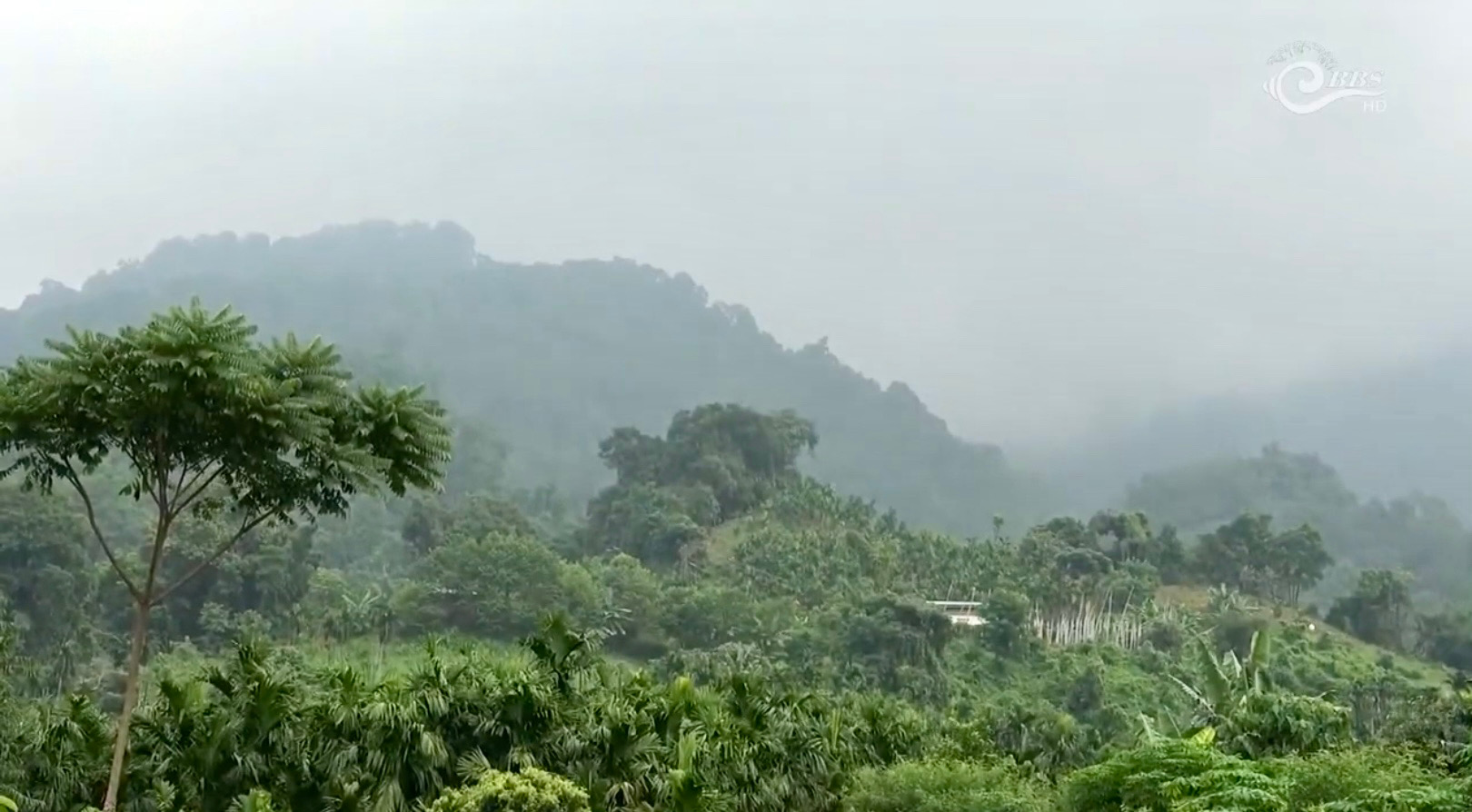 The government has taken various measures to address the ongoing human-wildlife conflict. However, a new initiative introduced a few years ago, the installation of chain–link fencing, has raised hopes among farmers who believe this could provide a long-awaited solution. The agriculture ministry has set aside some Nu 5bn in the current five-year plan to support chain-link fencing of 45,000 acres of paddy, maize and potato fields.
The government has taken various measures to address the ongoing human-wildlife conflict. However, a new initiative introduced a few years ago, the installation of chain–link fencing, has raised hopes among farmers who believe this could provide a long-awaited solution. The agriculture ministry has set aside some Nu 5bn in the current five-year plan to support chain-link fencing of 45,000 acres of paddy, maize and potato fields.
 The damaged areca nut tree is a stark reminder of the impact of human-wildlife conflict. Elephants and other wild animals frequently visit their fields and damage their crops.
The damaged areca nut tree is a stark reminder of the impact of human-wildlife conflict. Elephants and other wild animals frequently visit their fields and damage their crops.
 The people of Dizama began settling and farming in areas like Dawamay, Pakuri, and Zalashingzor several years ago. They began cultivating areca nut plants and other cash crops, which are now growing well and expected to bear fruit soon. However, the farmers here are always worried.
The people of Dizama began settling and farming in areas like Dawamay, Pakuri, and Zalashingzor several years ago. They began cultivating areca nut plants and other cash crops, which are now growing well and expected to bear fruit soon. However, the farmers here are always worried.
“We currently have barbed razor wire fencing, but elephants often break through it. We would be very grateful if the ministry could provide us with chain-link fencing to protect our fruit trees,” said Tsejay Norbu, Dizama-Shuguri Tshogpa, Chhoekhorling Gewog.
“The main problem here is the elephants. We fear them, and controlling such a large animal is impossible. We can at least guard against other animals, but the elephants are a bigger challenge,” said Dewa Rinchen, Dawamay, Chhoekhorling Gewog.
 According to gewog officials, the planned length of the fencing will stretch nearly 10 kilometres to cover the three villages. Unfortunately, the gewog’s annual grant is insufficient to fund the construction, so it has been included in the next phase.
According to gewog officials, the planned length of the fencing will stretch nearly 10 kilometres to cover the three villages. Unfortunately, the gewog’s annual grant is insufficient to fund the construction, so it has been included in the next phase.
“If we can get support for chain-link fencing, it is very appropriate at Dawamay and Pakuri. In the first phase, we got the fencing at Bafudhar. There is a high opportunity to get one next year or in 2026,” said Kencho Rinzin, agriculture extension officer, Chhoekhorling Gewog.
There are over twenty households here. And they plan to expand their areca nut plantations, boosting their income generation.
Thinley Dorji, Pema Gatshel
Edited by Tandin Phuntsho







